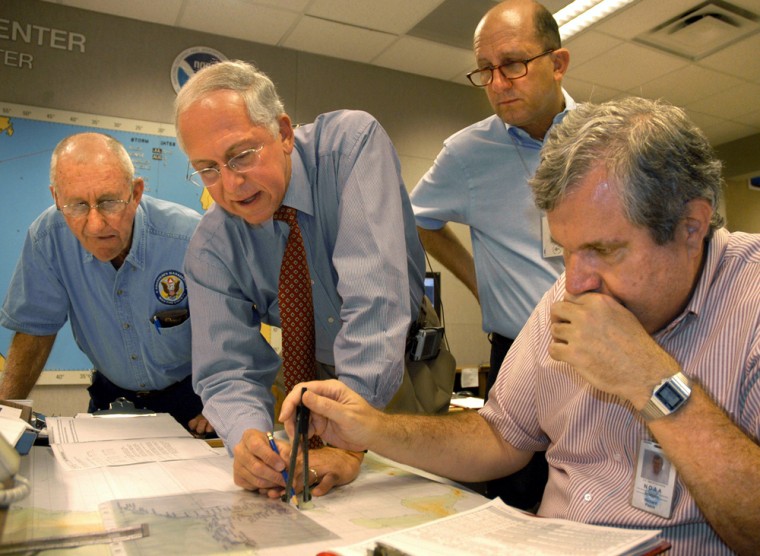This is where science meets human emotion. This is where a man walks into a room as a scientist, and walks out of it as a son.
Born in Cuba, always fascinated by tropical weather, Lixion Avila immigrated to the United States and rose through the ranks at the National Hurricane Center near Miami.
Now, as the senior forecaster there, he frequently consults with colleagues in Cuba and he has found himself drawing the lines that drive a Category 4 monster completely through his homeland — and directly at his aged mother in Havana.
"She's scared to death," Avila said Sunday. "But I told her to be calm, to stay in the house and to listen to what the local officials tell her to do. I tell her the same things I tell people right here in the United States."
Avila, 57, knows what's coming to Cuba, and so does his mother, Rosa, 85. They've both been through this before, but rarely with a storm as powerful and as seemingly focused on Cuba as Ike.
"They're looking at tremendous damage again," Avila said.
Avila arrived in the United States about 30 years ago. He was educated in Havana and at the University of Miami. He has worked at the hurricane center for 20 years.
Avila often serves as the center's primary coordinator with Cuba's forecasting headquarters in Havana and he is particularly close to Jose Rubiera, Cuba's chief forecaster.
"We share a tremendous amount of information," Avila said, "and we have access to all the (weather) radars in Cuba."
Political differences and diplomatic tensions are largely irrelevant in a situation like this, he and other U.S. weather officials said.
"We have a hurricane plan in the Caribbean and Cuba is no different than any other country there," Avila said. "Even during the missile crisis in '62, the flow of weather information never stopped.
"And besides, the business of the hurricane center is to save people's lives, and it doesn't matter where they are."
Now, the lives of many Cubans, including his mother, could be in danger. He thinks about that, he said, but not when he's on duty in the hurricane center's complex of computer and radar screens.
"When I'm sitting there writing a forecast, it doesn't matter if the storm is going to go over Cuba or the United States," he said.
"If you're a hurricane specialist, you have to leave those feelings outside when you get to the office. I put everything into the science. When I come out of the office, that's when I think about these other things."
